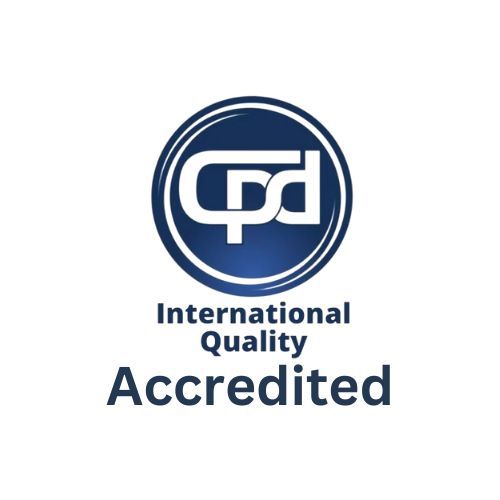Dialectical Behavior Therapy Mastery
Course Overview: Dialectical Behavior Therapy Mastery 🧠
Welcome to our comprehensive course on Dialectical Behavior Therapy (DBT) Mastery! This course is designed to provide you with a deep understanding and practical skills in utilizing DBT techniques for effective therapy interventions. Whether you're a seasoned mental health professional looking to enhance your therapeutic toolkit or someone interested in learning more about DBT for personal development, this course has something valuable to offer.Sections Covered in This Course:
- Introduction to DBT: Gain insights into the origins, principles, and theoretical underpinnings of Dialectical Behavior Therapy.
- Core Skills Training: Dive into the core modules of DBT, including mindfulness, distress tolerance, emotion regulation, and interpersonal effectiveness.
- Advanced Techniques: Explore advanced DBT techniques and strategies for addressing complex issues such as trauma, addiction, and borderline personality disorder.
- Application in Clinical Settings: Learn how to apply DBT principles and techniques in various clinical settings, including individual therapy, group therapy, and crisis intervention.
- Case Studies and Role-plays: Engage in case studies and role-plays to deepen your understanding of DBT concepts and enhance your therapeutic skills.
- Ethical Considerations: Discuss ethical considerations and challenges in practicing DBT, including issues related to confidentiality, boundaries, and cultural competence.
- Integration and Personal Development: Discover ways to integrate DBT principles into your personal and professional life for ongoing growth and self-care.
General Information on Dialectical Behavior Therapy:
Dialectical Behavior Therapy (DBT) is a form of cognitive-behavioral therapy developed by Dr. Marsha Linehan in the late 1980s. It was initially designed to treat individuals with borderline personality disorder (BPD) but has since been adapted for various other mental health conditions and populations.Key Components of DBT:
- Mindfulness: DBT emphasizes the practice of mindfulness to increase awareness of thoughts, emotions, and bodily sensations without judgment.
- Distress Tolerance: DBT teaches skills to tolerate and manage distressing emotions and situations without resorting to harmful behaviors.
- Emotion Regulation: DBT helps individuals identify, understand, and regulate their emotions effectively.
- Interpersonal Effectiveness: DBT provides strategies for improving communication, setting boundaries, and building healthy relationships.
Benefits of Learning DBT:
- Effective Treatment: DBT has been shown to be effective in treating a wide range of mental health issues, including mood disorders, substance abuse, eating disorders, and post-traumatic stress disorder (PTSD).
- Versatility: DBT techniques can be adapted for use in various settings, including hospitals, clinics, schools, and community organizations.
- Empowerment: Learning DBT skills empowers individuals to take control of their emotions, behaviors, and relationships, leading to improved quality of life.
FAQ: Dialectical Behavior Therapy Mastery Course
Q1: Who is this course suitable for?
A: This course is suitable for mental health professionals, counselors, therapists, social workers, students in psychology or counseling programs, and anyone interested in learning about Dialectical Behavior Therapy for personal or professional development.Q2: Do I need any prior experience in therapy or counseling to enroll in this course?
A: While prior experience in therapy or counseling may be beneficial, it is not required. This course is designed to accommodate learners with varying levels of experience, from beginners to experienced professionals.Q3: How long does it take to complete the course?
A: The duration of the course may vary depending on individual learning pace and engagement level. However, on average, learners can expect to complete the course within a few weeks to a few months, depending on the depth of study and practice.Q4: Will I receive a certificate upon completion of the course?
A: Yes, upon successful completion of the course requirements, including assessments and participation, you will receive a certificate of completion, which you can use to demonstrate your proficiency in Dialectical Behavior Therapy.Q5: Can I apply the skills learned in this course to my personal life?
A: Absolutely! The skills taught in this course are not only applicable to clinical settings but also highly beneficial for personal growth and development. Many individuals find that learning DBT techniques enhances their overall well-being and relationships.Q6: Is this course accredited?
A: While this course may not be accredited by a specific accrediting body, it is designed and delivered by experienced professionals in the field of mental health and counseling, ensuring high-quality education and training.Q7: Can I interact with instructors and fellow learners during the course?
A: Yes, this course provides opportunities for interaction with instructors and fellow learners through discussion forums, live sessions, and collaborative activities, fostering a supportive learning community.Q8: Are there any prerequisites for enrolling in this course?
A: There are no strict prerequisites for enrolling in this course. However, a basic understanding of psychology or counseling concepts may be helpful for better comprehension.Q9: Will this course teach me how to diagnose mental health conditions?
A: While this course covers various aspects of Dialectical Behavior Therapy, including assessment and intervention techniques, it is not designed to provide training in diagnosing mental health conditions. Diagnosing and treating mental health disorders typically require specialized training and qualifications.Q10: How can I access the course materials?
A: Once you enroll in the course, you will gain access to the course materials through our online learning platform. You can log in at any time and access the materials from your computer, tablet, or smartphone.Conclusion:
Dialectical Behavior Therapy Mastery is more than just a course; it's a journey toward enhancing your therapeutic skills, fostering personal growth, and making a positive impact in the lives of others. Join us on this transformative learning experience and unlock the power of DBT for yourself and your clients. Enroll today and take the first step toward mastery! 🚀Course Curriculum
About Course
Course Overview: Dialectical Behavior Therapy Mastery 🧠
Welcome to our comprehensive course on Dialectical Behavior Therapy (DBT) Mastery! This course is designed to provide you with a deep understanding and practical skills in utilizing DBT techniques for effective therapy interventions. Whether you’re a seasoned mental health professional looking to enhance your therapeutic toolkit or someone interested in learning more about DBT for personal development, this course has something valuable to offer.
Sections Covered in This Course:
- Introduction to DBT: Gain insights into the origins, principles, and theoretical underpinnings of Dialectical Behavior Therapy.
- Core Skills Training: Dive into the core modules of DBT, including mindfulness, distress tolerance, emotion regulation, and interpersonal effectiveness.
- Advanced Techniques: Explore advanced DBT techniques and strategies for addressing complex issues such as trauma, addiction, and borderline personality disorder.
- Application in Clinical Settings: Learn how to apply DBT principles and techniques in various clinical settings, including individual therapy, group therapy, and crisis intervention.
- Case Studies and Role-plays: Engage in case studies and role-plays to deepen your understanding of DBT concepts and enhance your therapeutic skills.
- Ethical Considerations: Discuss ethical considerations and challenges in practicing DBT, including issues related to confidentiality, boundaries, and cultural competence.
- Integration and Personal Development: Discover ways to integrate DBT principles into your personal and professional life for ongoing growth and self-care.
General Information on Dialectical Behavior Therapy:
Dialectical Behavior Therapy (DBT) is a form of cognitive-behavioral therapy developed by Dr. Marsha Linehan in the late 1980s. It was initially designed to treat individuals with borderline personality disorder (BPD) but has since been adapted for various other mental health conditions and populations.
Key Components of DBT:
- Mindfulness: DBT emphasizes the practice of mindfulness to increase awareness of thoughts, emotions, and bodily sensations without judgment.
- Distress Tolerance: DBT teaches skills to tolerate and manage distressing emotions and situations without resorting to harmful behaviors.
- Emotion Regulation: DBT helps individuals identify, understand, and regulate their emotions effectively.
- Interpersonal Effectiveness: DBT provides strategies for improving communication, setting boundaries, and building healthy relationships.
Benefits of Learning DBT:
- Effective Treatment: DBT has been shown to be effective in treating a wide range of mental health issues, including mood disorders, substance abuse, eating disorders, and post-traumatic stress disorder (PTSD).
- Versatility: DBT techniques can be adapted for use in various settings, including hospitals, clinics, schools, and community organizations.
- Empowerment: Learning DBT skills empowers individuals to take control of their emotions, behaviors, and relationships, leading to improved quality of life.
FAQ: Dialectical Behavior Therapy Mastery Course
Q1: Who is this course suitable for?
A: This course is suitable for mental health professionals, counselors, therapists, social workers, students in psychology or counseling programs, and anyone interested in learning about Dialectical Behavior Therapy for personal or professional development.
Q2: Do I need any prior experience in therapy or counseling to enroll in this course?
A: While prior experience in therapy or counseling may be beneficial, it is not required. This course is designed to accommodate learners with varying levels of experience, from beginners to experienced professionals.
Q3: How long does it take to complete the course?
A: The duration of the course may vary depending on individual learning pace and engagement level. However, on average, learners can expect to complete the course within a few weeks to a few months, depending on the depth of study and practice.
Q4: Will I receive a certificate upon completion of the course?
A: Yes, upon successful completion of the course requirements, including assessments and participation, you will receive a certificate of completion, which you can use to demonstrate your proficiency in Dialectical Behavior Therapy.
Q5: Can I apply the skills learned in this course to my personal life?
A: Absolutely! The skills taught in this course are not only applicable to clinical settings but also highly beneficial for personal growth and development. Many individuals find that learning DBT techniques enhances their overall well-being and relationships.
Q6: Is this course accredited?
A: While this course may not be accredited by a specific accrediting body, it is designed and delivered by experienced professionals in the field of mental health and counseling, ensuring high-quality education and training.
Q7: Can I interact with instructors and fellow learners during the course?
A: Yes, this course provides opportunities for interaction with instructors and fellow learners through discussion forums, live sessions, and collaborative activities, fostering a supportive learning community.
Q8: Are there any prerequisites for enrolling in this course?
A: There are no strict prerequisites for enrolling in this course. However, a basic understanding of psychology or counseling concepts may be helpful for better comprehension.
Q9: Will this course teach me how to diagnose mental health conditions?
A: While this course covers various aspects of Dialectical Behavior Therapy, including assessment and intervention techniques, it is not designed to provide training in diagnosing mental health conditions. Diagnosing and treating mental health disorders typically require specialized training and qualifications.
Q10: How can I access the course materials?
A: Once you enroll in the course, you will gain access to the course materials through our online learning platform. You can log in at any time and access the materials from your computer, tablet, or smartphone.
Conclusion:
Dialectical Behavior Therapy Mastery is more than just a course; it’s a journey toward enhancing your therapeutic skills, fostering personal growth, and making a positive impact in the lives of others. Join us on this transformative learning experience and unlock the power of DBT for yourself and your clients. Enroll today and take the first step toward mastery! 🚀
Course Content
DBT Mastery Program: Visual Learning and Comprehensive Guide
DBT- Course Overview
00:00DBT-Introduction to DBT
00:00DBT-How Does DBT Work
00:00DBT-DBT Strategies
00:00DBT-Mindfulness Skills
00:00DBT-Distress Tolerance Skills
00:00DBT-Emotion Regulation Skills
00:00DBT-Interpersonal Effectiveness Skills
00:00DBT-Multistage Approach of DBT
00:00DBT-Prioritizing Treatment Targets
00:00DBT-Behavioral Analysis
00:00DBT-DBT in BPD
00:00DBT-DBT in Depression
00:00DBT-DBT in Anxiety and Obsessive-Compulsive Disorder
00:00DBT-DBT in Eating Disorders
00:00DBT-DBT in Substance Dependence
00:00DBT-DBT in Suicidal and Self-Destructive Behaviours
00:00
Student Ratings & Reviews



Related Courses
Nothing was found



